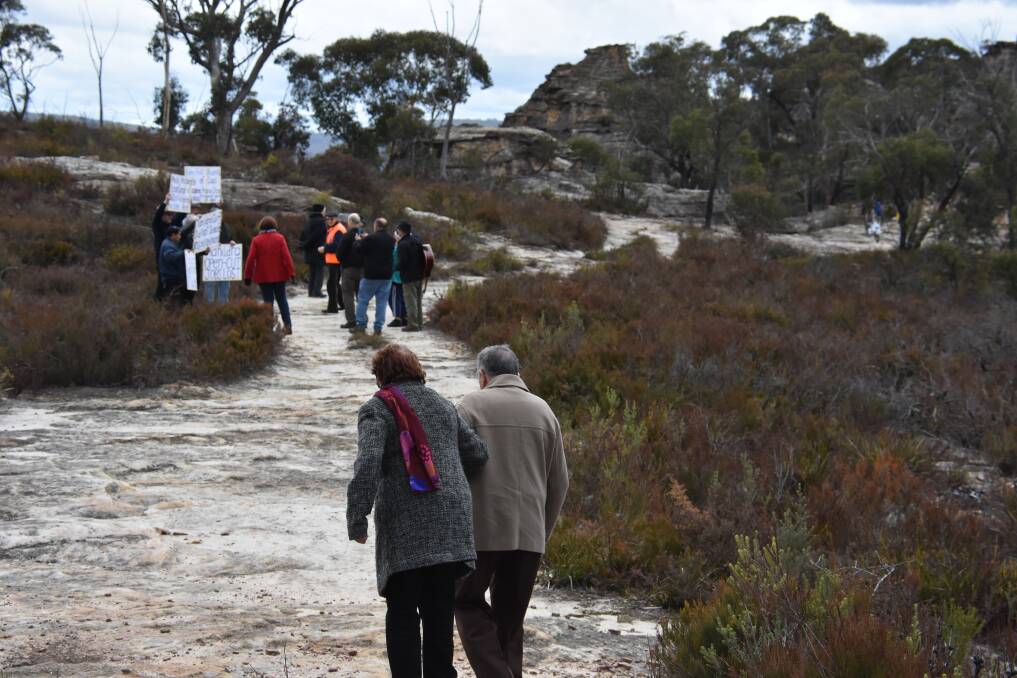
An unlikely meeting of personalities in Lithgow’s Tin Shed on Tuesday has “opened a door” in discussion on the future of the Gardens of Stone proposal, which involves reserving 39,000 hectares of unprotected forest as State Conservation Area on the Newnes Plateau.
Subscribe now for unlimited access.
or signup to continue reading
A notable pairing at the meeting was that of South-Western District branch of the CFMEU Andy Honeysett and Keith Muir, the director of the Colong Foundation for Wilderness.
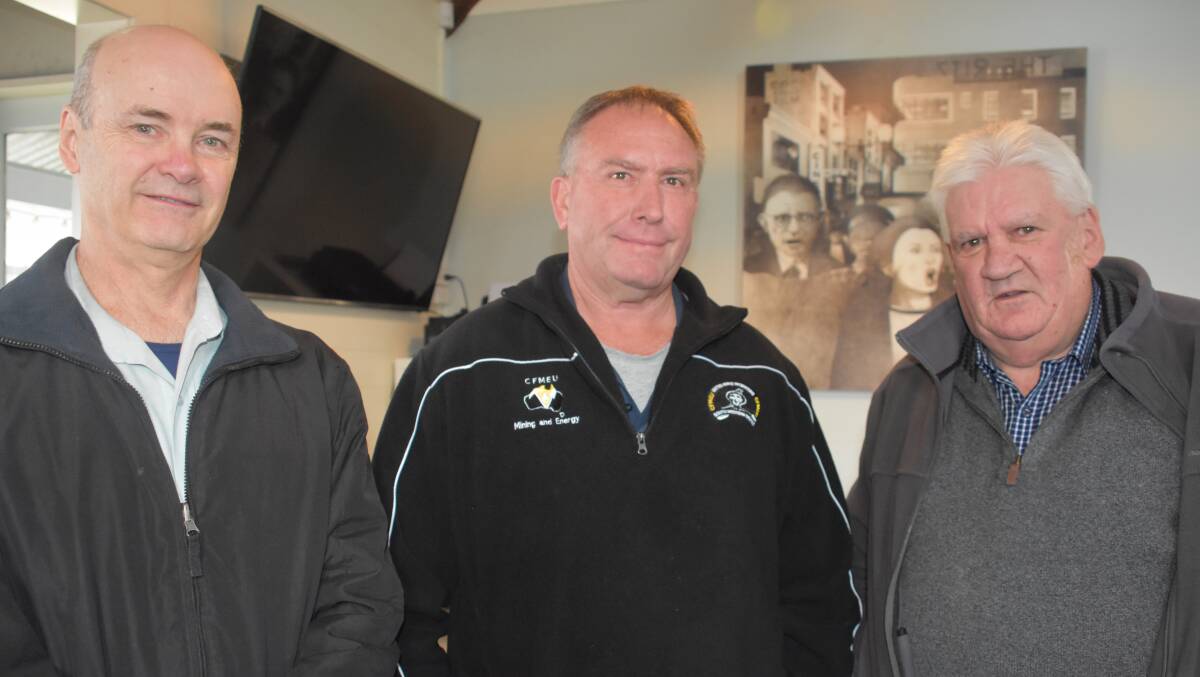
While the pair did not see eye-to-eye on the reopening of the open-cut Invincible Mine, Mr Honeysett said his constituents would be interested in knowing about the proposal, which its proponents claim would bring more jobs to Lithgow.
“No, we haven’t spoken like this [before].
“I am happy to hear Keith say they support underground mining. The coal industry in this area, I hope it’s gonna be here for a while yet,” Mr Honeysett said.
He said that he was sympathetic to the Gardens of Stone proposal.
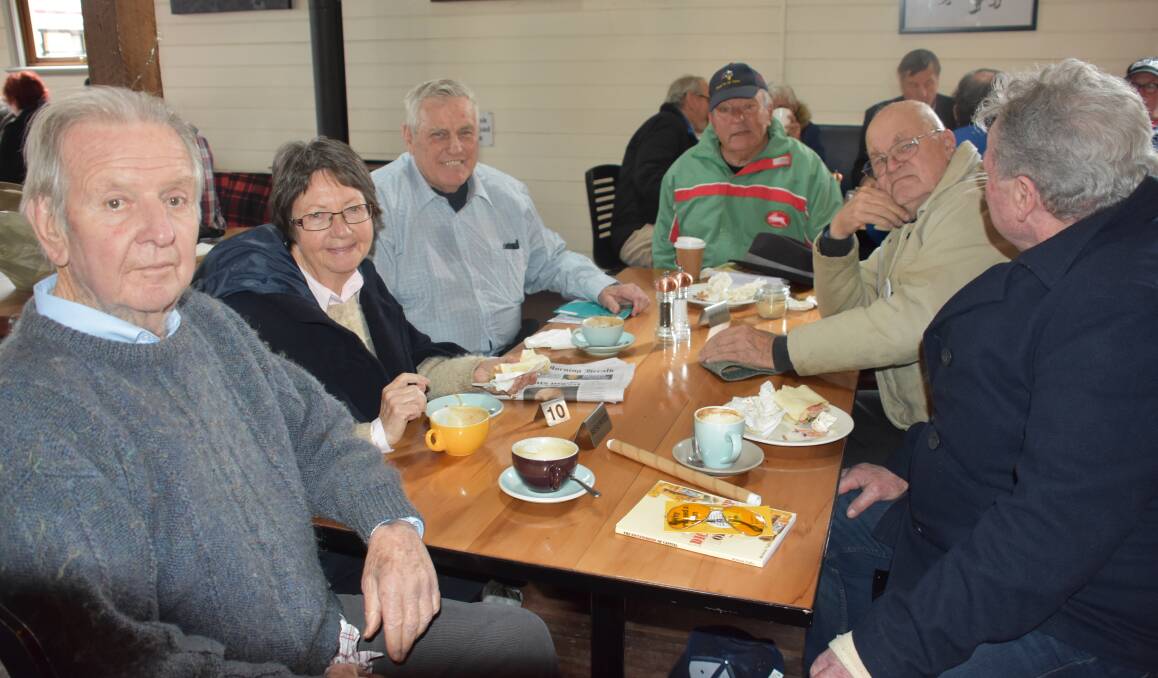
“As long as it doesn’t impact on the current mining and there’s future jobs for mining in the area, I’m all supportive of that.
“You’ve got to keep the communication channels open otherwise you’re at loggerheads instead of getting to the end goal.”
Mr Honeysett said the CFMEU was currently campaigning to re-open the underground Baal Bone coal mine, which lies about a kilometre west of the proposed conservation area.
“Whether that comes off or not, Glencore owns that at the moment, we’ve been pushing them. That’s what we’re talking about, mining in state forest - it doesn’t impact the surface as much.”
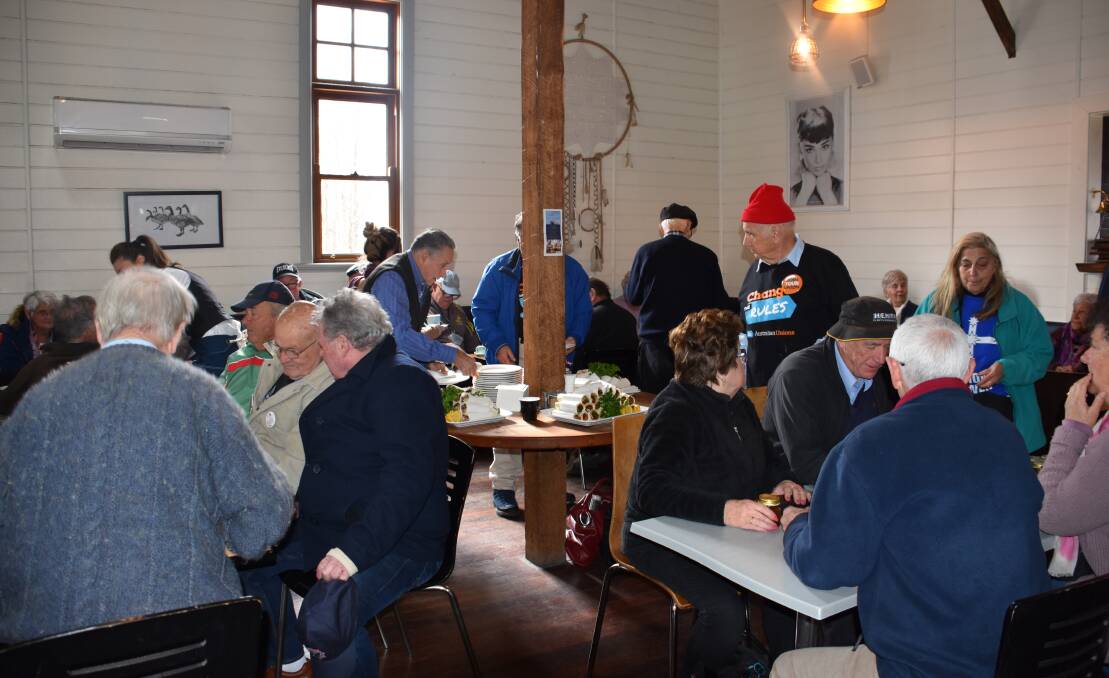
In June, CRUMA, the Combined Retired Union Member Association announced its support of Stage 2 of the ‘Gardens of Stone’ proposal, which was put forward by an alliance of environmental groups including the Colong Foundation in 2005.
The union association has resolved to attempt to bring Lithgow mining unionists and environmentalists to agreement on the plan, which would prevent open-cut mining in the vicinity but would allow for underground mining.
Mr Muir, who wrote the proposal, said the efforts of Janine Kitson, a union member and vice chairperson of the Colong Foundation, had been vital to the conversation taking place.
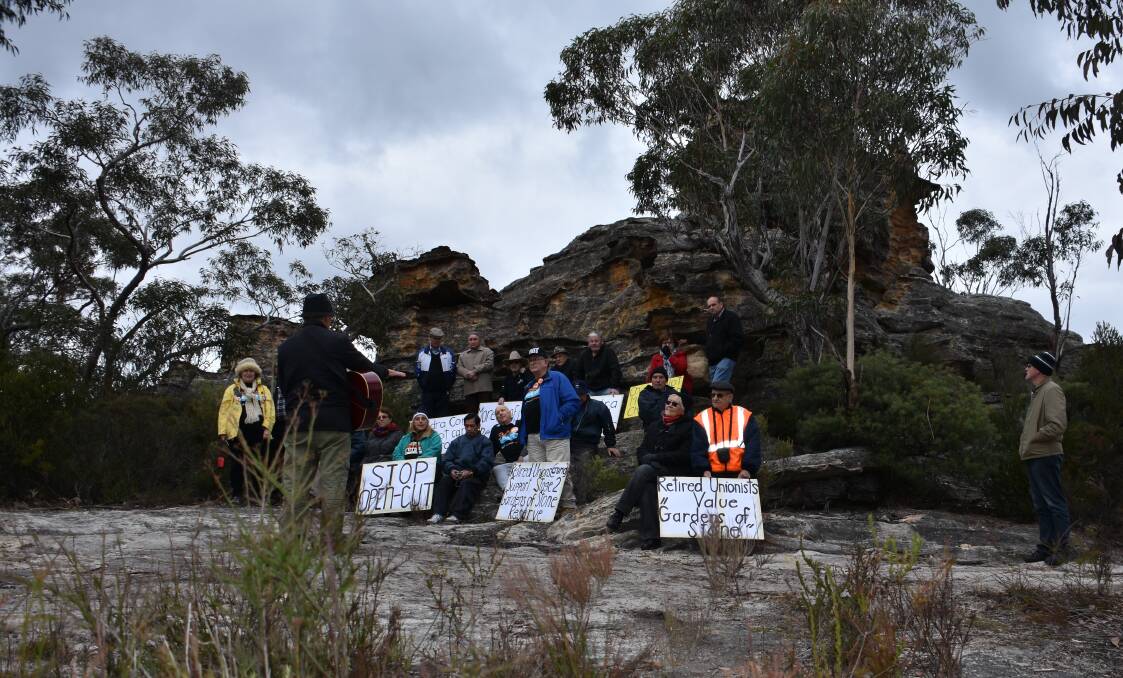
“I think it’s opened a door of negotiation and discussion,” Mr Muir said.
“We are offering tourism jobs,” he said.
“This area is covered in coal leases and approvals there’s no way on earth you’re going to stop mining, it’s a question of how you do it.”
Lithgow City Council has a standing position opposing the proposal.
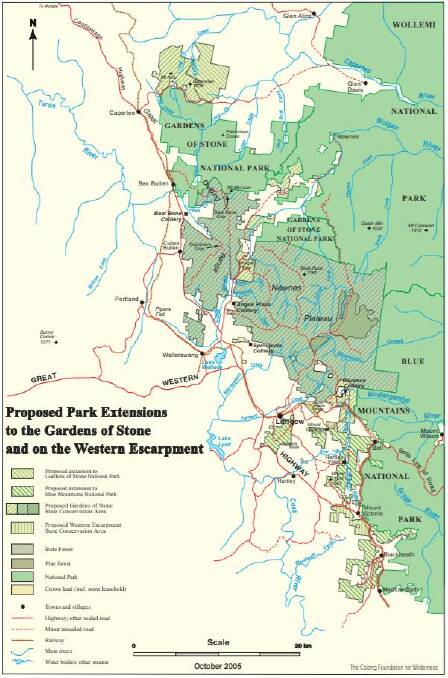
Deputy mayor Wayne McAndrew, who is a former national vice president of the CFMEU Mining and Energy Division, said council’s position was established in 2009 and reaffirmed in 2014.
He said the proposal puts a question mark on the possible re-opening of the underground Baal Bone and Airly coal mines.
“It’s my understanding that in the conservation area you can mine under it but you’re still under that uncertainty. A state conservation area can then be moved pretty quickly to a national park,” he said.
Airly Mine sits within the proposed area.
“My point of view, and I’ve been in the industry a long time, is that the uncertainty based on what I’m starting to see now is very concerning.”
Mr Muir said the Gardens of Stone proposal did not seek to establish national parkland.
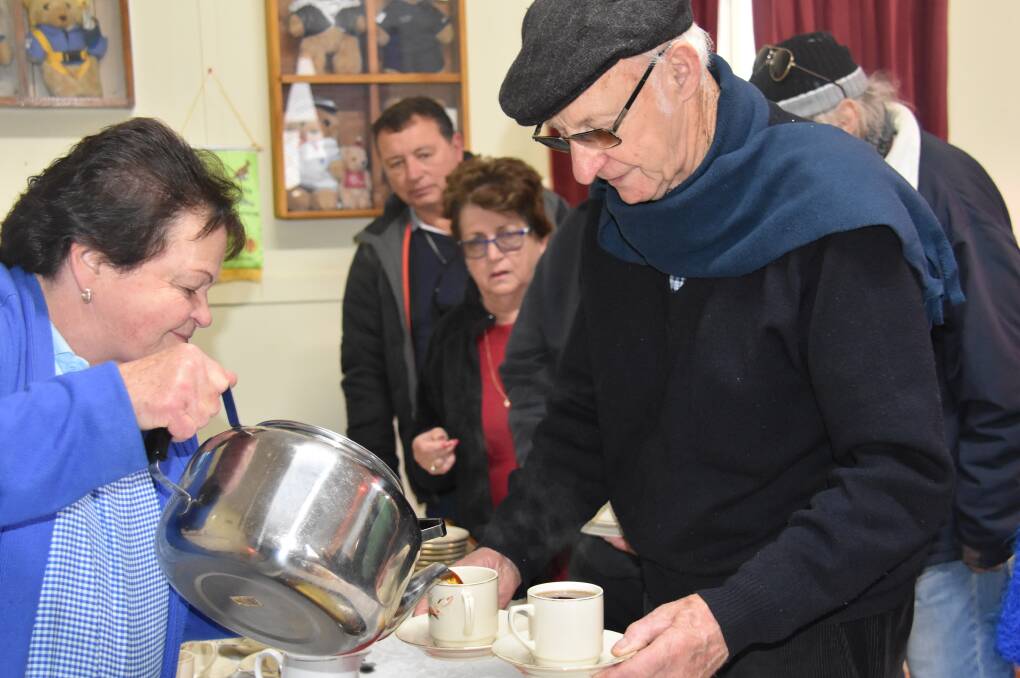
“No. That’s not the proposal at all,” Mr Muir said.
“To make it national park would require government to pay the mining companies hundreds of millions of dollars for the loss of an approved consent, throw people out of work... No government is going to do that.”
Activist Jack Mundey, famous for instigating Sydney’s Green Bans as secretary of the NSW Builders Labourers Federation, travelled with his wife Judy to attend the meeting.
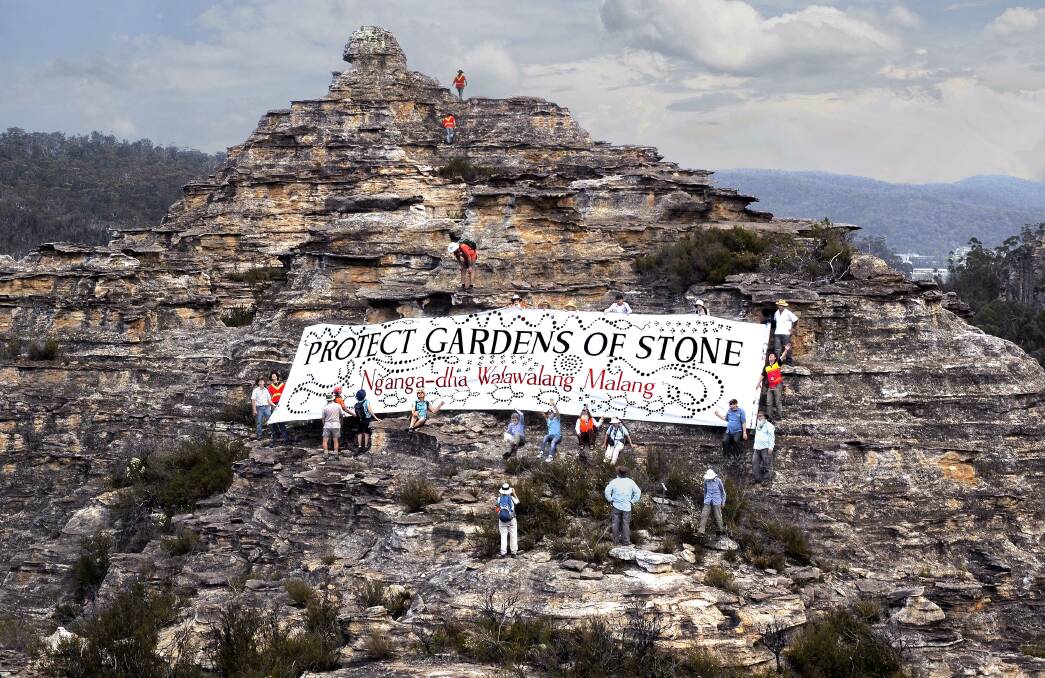
“This is one of the most important parts of Australia because of its history; its industrial history, depression and role in World War II. The history of this area should be recorded for posterity,” Mr Mundey said.
Mayor Stephen Lesslie attended the meeting.
Read more:
“The Gardens of Stone are a major part of future tourist development within the Lithgow Local Government area,” he said.
“However, I recommend CRUMA also consult with the local mining unions and the local mine operators, to ensure that a mutually agreeable path can be found that does not cost local jobs and preserves our natural heritage into the future.”
The statement reflected the mayor’s indication at Lithgow City Council’s July meeting that he would request CRUMA consult with local mine operators and mining representative bodies.

